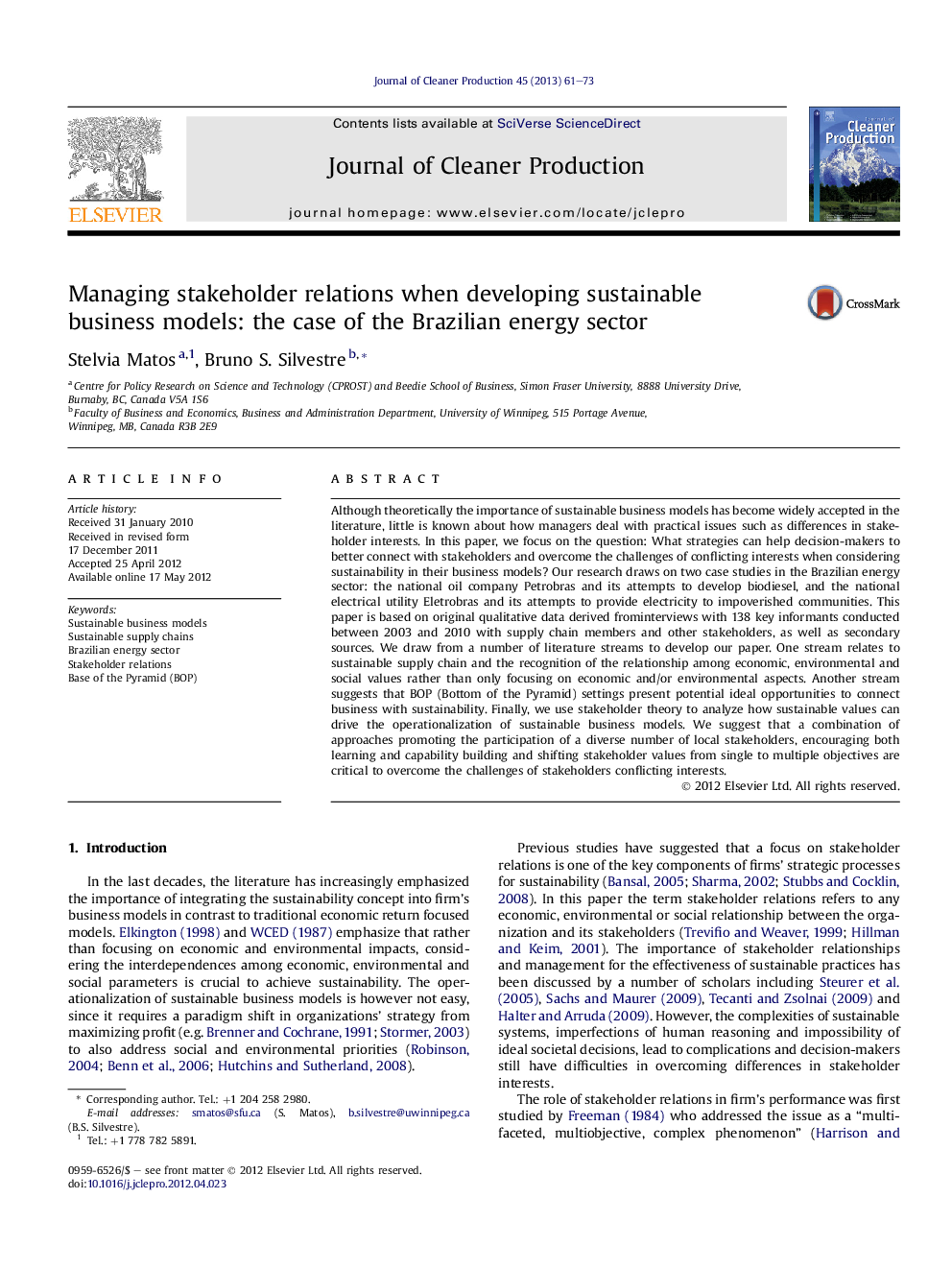| Article ID | Journal | Published Year | Pages | File Type |
|---|---|---|---|---|
| 1745431 | Journal of Cleaner Production | 2013 | 13 Pages |
Although theoretically the importance of sustainable business models has become widely accepted in the literature, little is known about how managers deal with practical issues such as differences in stakeholder interests. In this paper, we focus on the question: What strategies can help decision-makers to better connect with stakeholders and overcome the challenges of conflicting interests when considering sustainability in their business models? Our research draws on two case studies in the Brazilian energy sector: the national oil company Petrobras and its attempts to develop biodiesel, and the national electrical utility Eletrobras and its attempts to provide electricity to impoverished communities. This paper is based on original qualitative data derived frominterviews with 138 key informants conducted between 2003 and 2010 with supply chain members and other stakeholders, as well as secondary sources. We draw from a number of literature streams to develop our paper. One stream relates to sustainable supply chain and the recognition of the relationship among economic, environmental and social values rather than only focusing on economic and/or environmental aspects. Another stream suggests that BOP (Bottom of the Pyramid) settings present potential ideal opportunities to connect business with sustainability. Finally, we use stakeholder theory to analyze how sustainable values can drive the operationalization of sustainable business models. We suggest that a combination of approaches promoting the participation of a diverse number of local stakeholders, encouraging both learning and capability building and shifting stakeholder values from single to multiple objectives are critical to overcome the challenges of stakeholders conflicting interests.
